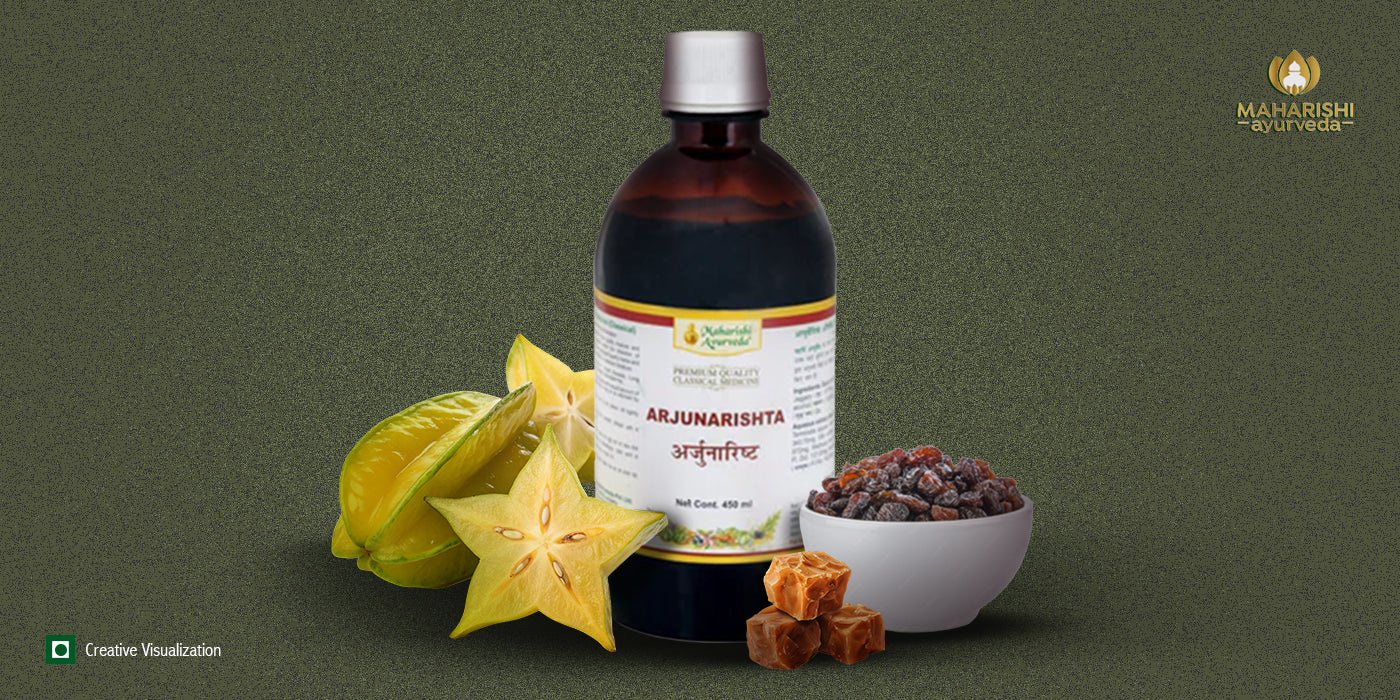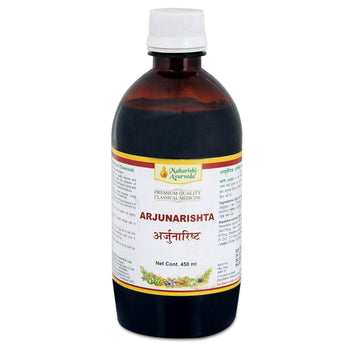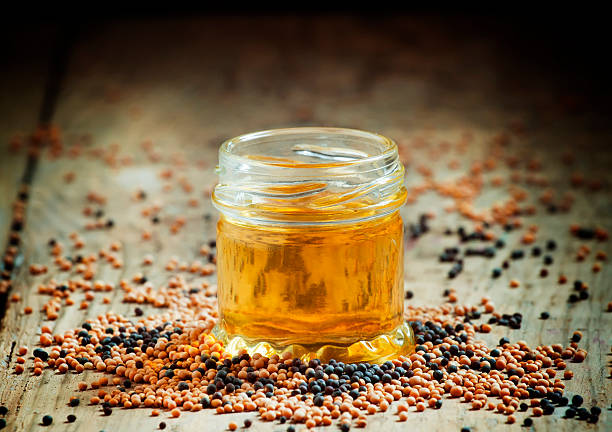Ultimate Guide to Arjunarishta: Ayurvedic Heart Tonic Benefits

For centuries, Ayurveda has offered remedies that go beyond symptom relief they nurture balance in body and mind. One such gem is Arjunarishta, an Ayurvedic heart tonic that has stood the test of time. Mentioned in classical texts and revered in traditional practice, this herbal formulation is prepared through a careful fermentation process that unlocks the healing potential of Terminalia Arjuna (Arjuna bark) and other synergistic herbs.
Arjunarishta is not just a medicine; it is a holistic heart companion. From supporting strong cardiac function to aiding circulation and emotional balance, this tonic embodies Ayurveda’s integrative philosophy.
Quick TL;DR — Arjunarishta
- What it is: Ayurvedic fermented tonic made from Arjuna bark and synergistic herbs.
- Heart Support: Strengthens heart muscles, aids circulation, and balances blood pressure.
- Lipid & Detox: Helps regulate cholesterol, supports fat metabolism, and purifies blood.
- Other Benefits: Boosts stamina, relieves chest discomfort, and supports respiratory health.
- Dosage: 15–20 ml twice daily after meals, mixed with lukewarm water; consult a physician if on medication.
What is Arjunarishta?
Arjunarishta is a liquid formulation primarily derived from the bark of the Arjuna tree, celebrated in Ayurveda for its cardioprotective properties. It is classified as a Hṛdya Rasāyana, a rejuvenative tonic for the heart. Through natural fermentation, the herbs release bioactive compounds that are easily absorbed, making Arjunarishta both potent and gentle.
Key Ingredients of Arjunarishta

Each ingredient in Arjunarishta has a specific role in promoting cardiovascular and overall health:
- Terminalia Arjuna (Arjuna bark) → Strengthens heart muscles and supports healthy circulation.
- Munakka (dried grapes) → Adds natural sweetness, improves digestion, and balances dryness.
- Dhataki (Woodfordia flower) → Acts as a natural fermenting agent and balances the formulation.
- Jaggery → Provides a natural boost of energy, helping to reduce acidity, boost nutrient absorption and support metabolism.
Together, these create a formulation that supports heart vitality while aligning with Ayurveda’s principle of synergy and balance.
Health Benefits of Arjunarishta

1. Supports Heart Health (Hṛdya Rasāyana)
Arjunarishta is considered a Hṛdya (cardiac tonic) in Ayurveda. Its key ingredient, Arjuna (Terminalia arjuna), is praised in classical texts like Charaka Samhita for strengthening the heart muscles (hṛdaya balya). By nurturing the cardiac tissues (rasadhatu and rakta dhatu), it helps maintain steady heart function and vitality.
Read 10 Ways to Keep Your Heart Healthy—>
2. Helps Regulate Cholesterol & Lipid Balance
The astringent (kashaya rasa) property of Arjuna bark naturally supports the body’s fat metabolism. This contributes to reducing excessive meda dhatu (fat tissue) and maintaining a healthy lipid profile. Unlike synthetic interventions, Arjunarishta works by harmonizing digestion (agni) and circulation, which are at the root of lipid imbalance.
3. Balances Blood Pressure (Rakta Chāp)
With its mild ushna virya (warming potency) and tridosha-balancing effect, Arjunarishta supports smooth blood flow by dilating the vessels and calming Vata-induced constriction. This makes it beneficial for managing fluctuating blood pressure, especially when stress or poor circulation is involved.
4. Enhances Circulation & Vital Energy
By improving the movement of prana vata and purifying rakta dhatu, Arjunarishta aids efficient distribution of oxygen and nutrients. Better circulation not only energizes the body but also supports cellular nourishment and tissue repair, which reflects as improved stamina and vitality (ojas vardhana).
5. Provides Relief in Angina & Chest Discomfort
Ayurveda describes chest pain (hṛd shoola) as arising from aggravated vata and impaired circulation. Arjunarishta, with its strengthening and nourishing effect on the heart, can reduce episodes of discomfort. It acts by calming the aggravated doshas and supporting healthy coronary artery function.
6. Natural Blood Detoxifier
Arjunarishta possesses mild cleansing (rakta shodhana) properties. By removing accumulated ama (toxins) from the bloodstream it helps maintain the purity of the blood. This not only benefits cardiovascular health but also supports skin clarity, immunity, and overall wellness.
7. Supports Respiratory Health (Śvāsa Roga)
Classical Ayurvedic texts also mention Arjuna’s role in respiratory imbalances. Arjunarishta, being mildly expectorant and dosha-balancing, helps in conditions like śvāsa (asthma) and chronic cough by soothing the airways, improving lung strength, and balancing Kapha and Vata in the respiratory tract.
How to Use Arjunarishta
1. Dosage
The recommended dosage for adults is 15-20 ml of Arjunarishta. This can be taken twice daily, ideally after meals to enhance absorption and minimize any potential digestive discomfort.
2. Mixing
To enjoy Arjunarishta, mix the measured dosage with an equal quantity of lukewarm water. This not only helps dilute the syrup but also makes it easier to consume.
3 .Timing
For best results, take Arjunarishta consistently for 3 to 6 months, or as advised by your Ayurvedic physician. Consistency is key to experiencing the full benefits of this tonic.
4. Consultation
If you are on other medications or have specific health concerns, it’s advisable to consult with an Ayurvedic Vaidya before starting Arjunarishta, ensuring it complements your overall health plan.
Arjunarishta: Precautions and Side Effects
1. Pregnancy and Breastfeeding
Pregnant women should consult an Ayurvedic physician before using Arjunarishta to ensure safety for both mother and child. During breastfeeding, it’s best to seek professional advice as well.
2. Diabetes Management
Since Arjunarishta contains jaggery, individuals with diabetes should use this tonic under medical supervision to monitor blood sugar levels effectively.
Also Read Natural Ways to Manage Blood Sugar Levels→
3. Possible Interactions
If you are taking medications for heart conditions or blood pressure, consult your healthcare provider before starting Arjunarishta to avoid any potential interactions.
4. Side Effects
Though rare, some individuals may experience mild digestive issues like nausea or bloating. If these symptoms occur, it’s advisable to reduce the dosage or discontinue use and consult a healthcare professional.
5. Long-term Use
While Arjunarishta is safe for long-term use, it’s recommended to periodically consult with a physician to evaluate its ongoing suitability for your health needs.
Ayurvedic Perspective on Arjunarishta
Arjuna is much more than a cardiac tonic. According to Ayurveda, Arjunarishta acts like a general health tonic and helps to restore your health and vitality by balancing aggravated Vata, Pitta, and Kapha doshas.
Historically, Arjunarishta has been utilised not only for its physical benefits but also for its role in supporting emotional well-being. Ayurvedic texts emphasise the importance of a balanced heart, linking it to emotional stability and overall vitality.
Arjunarishta is often recommended as part of a comprehensive wellness plan, which may include dietary adjustments, yoga, and meditation. By integrating this tonic into your routine, you embrace a time-honoured practice that supports both physical health and emotional balance, aligning with the Ayurvedic principle of nurturing the whole person.
What’s the difference between Arjunarishta and Arjuna powder?
Arjunarishta → Fermented blend of Arjuna with Munakka and Madhuka; cardio-protective, nourishing, easier to digest.
Arjuna Powder → Single-herb preparation; astringent and drying, best used as ksheer pak (processed in milk) to avoid aggravating Vata.
Conclusion
In summary, Arjunarishta is a trusted Ayurvedic tonic that supports heart health and overall well-being. With its blend of natural ingredients, it can be a gentle ally in managing concerns like blood pressure, cholesterol, and fatigue. Consistent, mindful use combined with healthy habits such as balanced nutrition, exercise, and stress management creates a strong foundation for long-term wellness. Always consult an Ayurvedic doctor to personalize dosage and ensure safe, effective results.
Support your heart with time-tested Ayurveda. Shop Arjunarishta today and experience natural vitality.
FAQs
1. What is Arjunarishta used for?
Arjunarishta is traditionally used as a heart tonic, supporting cardiovascular health and promoting overall well-being.
2. Can I take Arjunarishta with other medications?
While Arjunarishta is generally safe, it’s advisable to consult your healthcare provider if you are on other medications to avoid potential interactions.
3. How long should I take Arjunarishta?
For best results, it is recommended to take Arjunarishta for 3 to 6 months, or as directed by your Ayurvedic physician.
4. Does Arjunarishta have any side effects?
Some individuals may experience mild digestive discomfort. If this occurs, consider adjusting the dosage or discontinuing use.
5. Is Arjunarishta safe for diabetics?
Diabetics should use Arjunarishta under medical supervision due to its jaggery content, which may affect blood sugar levels.
6. Can Arjunarishta help with high cholesterol?
Yes, Arjunarishta is believed to support the reduction of LDL cholesterol levels, promoting heart health.
7. What are the key ingredients in Arjunarishta?
The main ingredients include Terminalia Arjuna, Munakka, Dhataki, and jaggery, each contributing to its health benefits.
8. Can I take Arjunarishta if I don’t have heart problems?
While it’s beneficial for heart health, Arjunarishta can also be taken as a preventive measure, but consult with a doctor first.
Popular Posts

Choosing the Right Detox Based on Your Ayurvedic Body Type
30 Jan, 2026The fundamental truth of the human condition is that no two bodies function the same way. Based o...
Read more
Ayurvedic Detox Diet Tips and Recipes You Can Easily Make at Home
29 Jan, 2026In Ayurveda, detoxification is the process of digesting or eliminating accumulated toxins or ama ...
Read more
Foods That Support Detox According to Ayurveda
28 Jan, 2026In Ayurveda, food is the primary source of prana, the vital life energy that sustains the body, m...
Read more





 Popular Read
Popular Read

















































